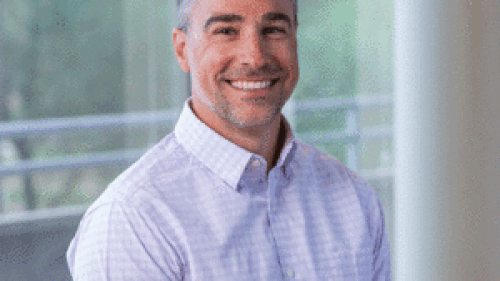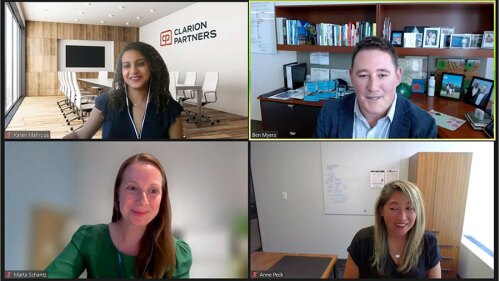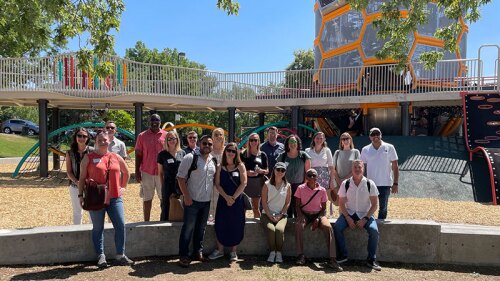Like many areas of the United States, California is facing a housing affordability crisis in its most populous area, and the San Francisco Bay area is ground zero, with sky-high rents and housing prices. To help address the issue, ULI San Francisco created the Housing the Bay initiative in early 2017. Through research, events, and workshops, the initiative aims to explore the underlying causes of the Bay Area’s high housing costs and inadequate housing supply and propose solutions. As a culmination of all this work, the Housing the Bay Summitwill be held on March 23, 2018.
“We decided to focus on three areas: the cost of building, financing, and community engagement and the public process,” says Michelle Frey, executive director of ULI San Francisco. Three working groups formed to take on each topic. “We started researching in all those three areas, which included a lot of interviews. We intentionally engaged with people outside of the ULI membership. For example, in the area of construction costs, we met with contractors and unions.”
The cost of building working group decided to concentrate on both construction costs and development fees. “A lot of different factors have been pushing construction costs up, including a limited labor pool,” says Amit Price Patel, principal of SITELAB urban studio in San Francisco, and a member of the Housing the Bay steering committee, and co-chair of the cost of building working group. This group held two panels on modular housing in 2017, considering permitting different construction technologies, why some modular housing companies have failed, and labor issues related to modular housing.
On the subject of development fees, the group interviewed staff members from different city agencies; affordable housing advocates, who benefit from development fees; and developers. On the basis of this input, the working group assembled a panel for the summit that will discuss the need for development fees and whether those fees are so high that they are actively keeping new housing from being built. “The lack of availability of housing for a wide range of people, and the challenges of transportation, are making the Bay Area less and less a place of opportunity,” says Price Patel. “We need to work quickly to make sure that the Bay Area can continue to the grow and prosper.”
The finance working group decided to focus primarily on rental housing, considering strategies that might either lower the cost of capital—the money that goes into funding housing—or reduce annual expenses for housing. “We need to come up with more strategies to either preserve existing housing to prevent displacement or build new housing,” says Libby Seifel, president of Seifel Consulting in San Francisco, board member of ULI San Francisco, and a member of the Housing the Bay steering committee and finance working group.
The finance working group held a presentation on accessory dwelling units in April 2017 as a lead-up program to the summit. San Francisco created its citywide accessory dwelling unit program in 2016, and ULI San Francisco teamed up with the University of California, Berkeley’s Terner Center for Housing Innovation to study how Portland, Seattle, and Vancouver helped stimulate production of accessory dwelling units to help ease housing pressures in their high-cost regions. “In San Francisco, accessory dwelling units are attracting the interest not only of single-family homeowners, but also of apartment owners, who are choosing to convert unused spaces that have access to air and light into housing,” Seifel says.
The finance working group also assembled a panel session on Proposition 13 tax reform. Scheduled to take place two weeks before the summit, the panel will describe how Proposition 13—which places limits on the state’s property taxes—discourages property turnover and has helped increase housing development costs, which curtails new housing construction. A new ballot initiative has been proposed for the November 2018 elections that would reform Proposition 13. If passed, the initiative would enable commercial and industrial properties to be taxed based on their current market value, but would not change property taxes for residential properties.” We’ll explore the pros and cons of the proposed changes, particularly in light of the 2017 federal tax reform bill,” says Seifel.
At the summit itself, a panel will focus on new financing tools and strategies for the “missing middle”—middle-income households—including representatives from nonprofit and for-profit development companies that are building mixed-income housing and a startup fund raising money for workforce housing in Texas.
The third working group began by simply focusing on community engagement, but expanded to include the public process. “These days, most developers understand the formula of how to conduct community engagement correctly—starting early in the process, really getting to know your community members, being a good listener, and doing what you can to have the community outreach unfold organically so there is buy-in on all sides,” says Xiomara Cisneros, community outreach manager for the real estate development firm Universal Paragon Corporation in San Francisco, a member of the Housing the Bay steering committee, and co-chair of the community engagement and public process working group. “So we decided to tie in public process, because the public process is broken. CEQA [the California Environmental Quality Act] is well intentioned, created to preserve our open spaces and protect our environment and hold poorly proposed projects accountable, but unfortunately, it has become a tool for NIMBYs to delay or kill projects.”
The community engagement/public process working group organized an affinity group that brings together a wide spectrum of people who manage community engagement, including staff members of city agencies, community group members, project managers for development companies, and architects. Three affinity group meetings have been held so far: in the first, a developer presented a best-practice case study; in the second, elected representatives from different parts of the region shared their perspectives as lawmakers; and in the third, community group representatives discussed the issues they care about most when considering the impacts of a housing proposal. “We need to work together and learn from each other to improve the community engagement and public approvals process for residential developments,” Cisneros says.
For the March 23 summit, the community engagement/public process working group organized a “lightning round” panel that consists of housing activists, community collaborators, finance startup companies, and members of the tech community working on housing equity. Panelists will have three minutes each to present their ideas for overcoming obstacles to the development process. “We asked ourselves, who are the people doing interesting, disruptive things, and how can we inspire the audience to think out of the box?” Cisneros says. “Because it’s time to do something more innovative to really solve the housing crisis.”
ULI San Francisco intends to keep the work of the Housing the Bay initiative going after the summit is over. “We have always seen the summit not as the end of the work, but as a pivot,” says Frey. “The idea was that three groups would explore these three possibilities, and when it came to the event, would propose actions for us to work on together going forward.”
The Housing the Bay Summit takes place from 8:00 a.m. to 5:00 p.m. on Friday, March 23, 2018, at the Hotel Nikko in San Francisco.






